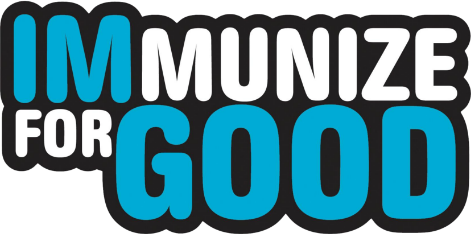HPV
What is it?
Human papillomavirus (HPV) is a virus that can cause cervical, genital, anal, and oral cancers, and genital warts. The virus is spread through intimate skin-to-skin contact. HPV can infect people at any age. HPV is actually a group of over 200 related viruses. There are about 40 types of HPV that can infect a person’s genital areas. These HPV types can also infect the mouth and throat. Thankfully, there’s a vaccine to protect against HPV.
Why is the vaccine important?
Nearly all people will get HPV at some point in their lives. About 43 million people in the U.S. are currently infected, and 13 million new infections occur each year. Many people don’t even know they’re infected. Most HPV infections clear on their own without causing serious problems. However, certain types of HPV cause infections can develop into health problems, including genital warts and future cancers. HPV infections can occur in all people, regardless of their biological sex. HPV can lead to:
- Cancer – HPV causes nearly 37,800 cases of cancer every year in the U.S.
- 10,800 cervical, 2900 vaginal, and 700 vulvar cancers.
- 900 penile cancers
- 6,900 anal cancers
- 14,800 cancers of the back of the throat (oropharynx)
- Genital warts – About 5% adults in the U.S. have been diagnosed with genital warts.
The majority of HPV infections occur before age 25. While your child may seem too young to be at risk for sexually transmitted infections, the HPV vaccine is most effective before sexual activity begins. It is important to vaccinate before potential infection could occur since the vaccine prevents a person from getting HPV. Once the infection occurs, your child could be at risk for developing future cancers. Research shows that vaccinating children against HPV does not increase the risk of sexual activity.
Progress
The HPV vaccine available in the U.S. is called Gardasil-9. It protects against 9 types of HPV. The vaccine can help prevent more than 90% of HPV-related cancers. It has decreased HPV infections that cause most HPV cancers and genital warts by 88% in teen girls. Since the vaccine was approved in 2006, fewer teens and young adults are getting genital warts. Also, fewer young people are getting precancers in their cervix. Current studies following vaccinated people for at least 10 years show there is no evidence that protection declines over time. Over 135 million doses of HPV vaccine have been given in the U.S. since it first was available. Over 15 years of data show the HPV vaccine is very safe.
Vaccine Recommendations
The HPV vaccine is recommended for children ages 11 – 12 and can be given as early as age 9. At this age, the body’s immune response to the vaccine is the strongest. Children should get 2 doses of the vaccine 6 – 12 months apart. Catch-up immunization is recommended for people 13 – 26 years old who did not receive the vaccine when they were younger or did not complete the series. If they are 15 or older, they will need 3 doses of the vaccine.
People who have an allergy to yeast or are pregnant should not get the HPV vaccine.
Side Effects
Vaccines, like any medicine, can cause side effects (also known as "adverse reactions"). Most side effects are mild and go away within a few days. Common side effects include fever, headache, or body aches. They can also include redness where the shot was given and tiredness. Side effects are normal. They can even be a good sign that the immune system is working to build antibodies that will fight off future infections!
Side effects for the HPV vaccine may also include dizziness, fainting, and nausea.
Remember, vaccines are continuously studied. They are also closely monitored for safety. Research continues to show that vaccines are safe, and the benefits outweigh the risks. The risk of a severe allergic reaction to a vaccine is rare (about 1 in million). The choice not to vaccinate is ultimately riskier. Not vaccinating may lead to catching a potentially deadly disease.
Talk to your healthcare provider if you have any questions or concerns about vaccine side effects. In the event of a serious allergic reaction, call 9-1-1.

